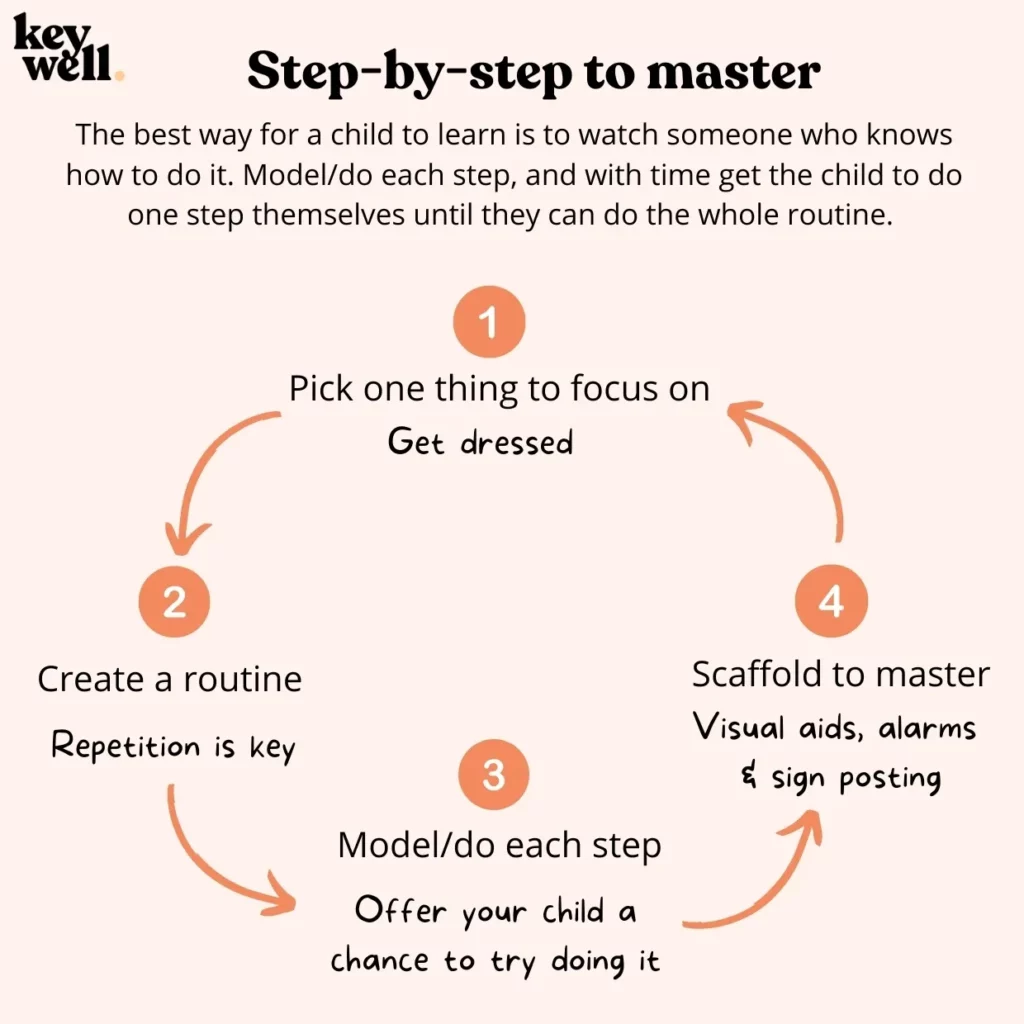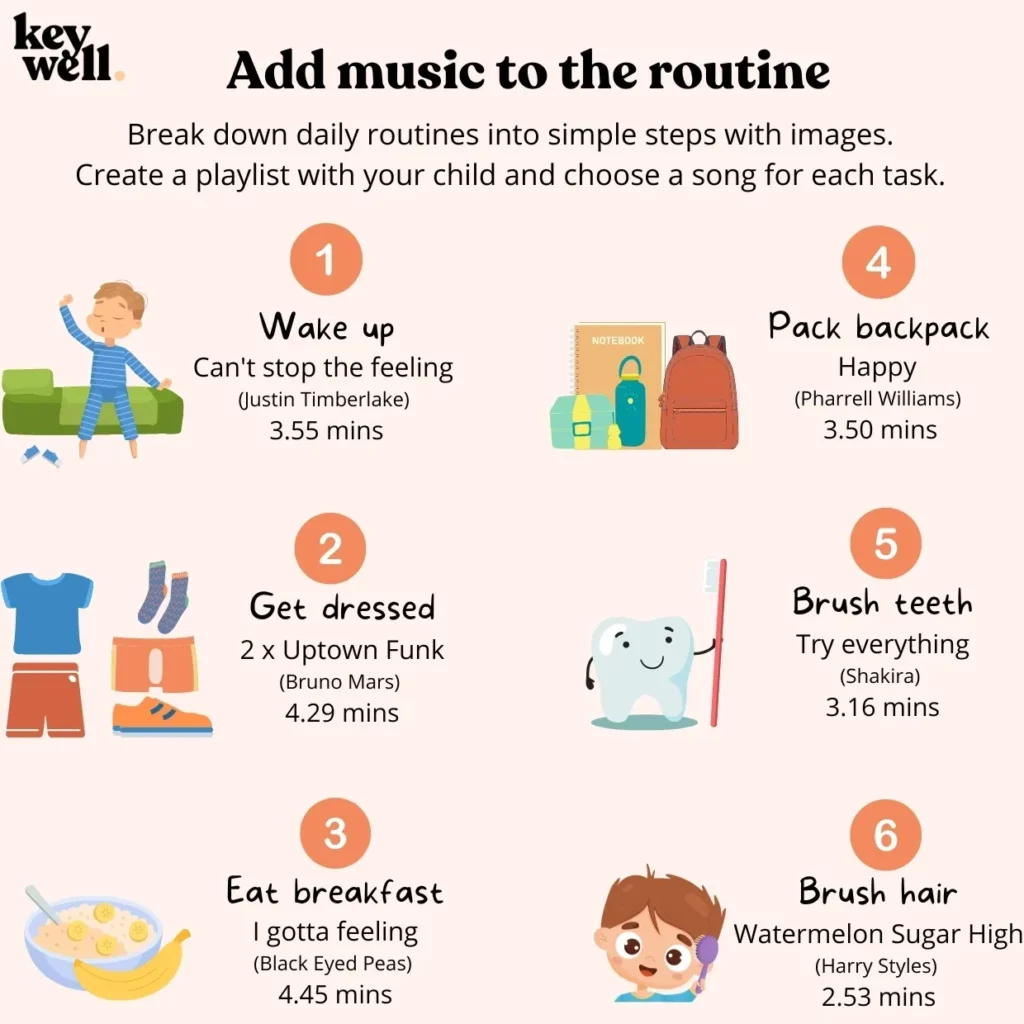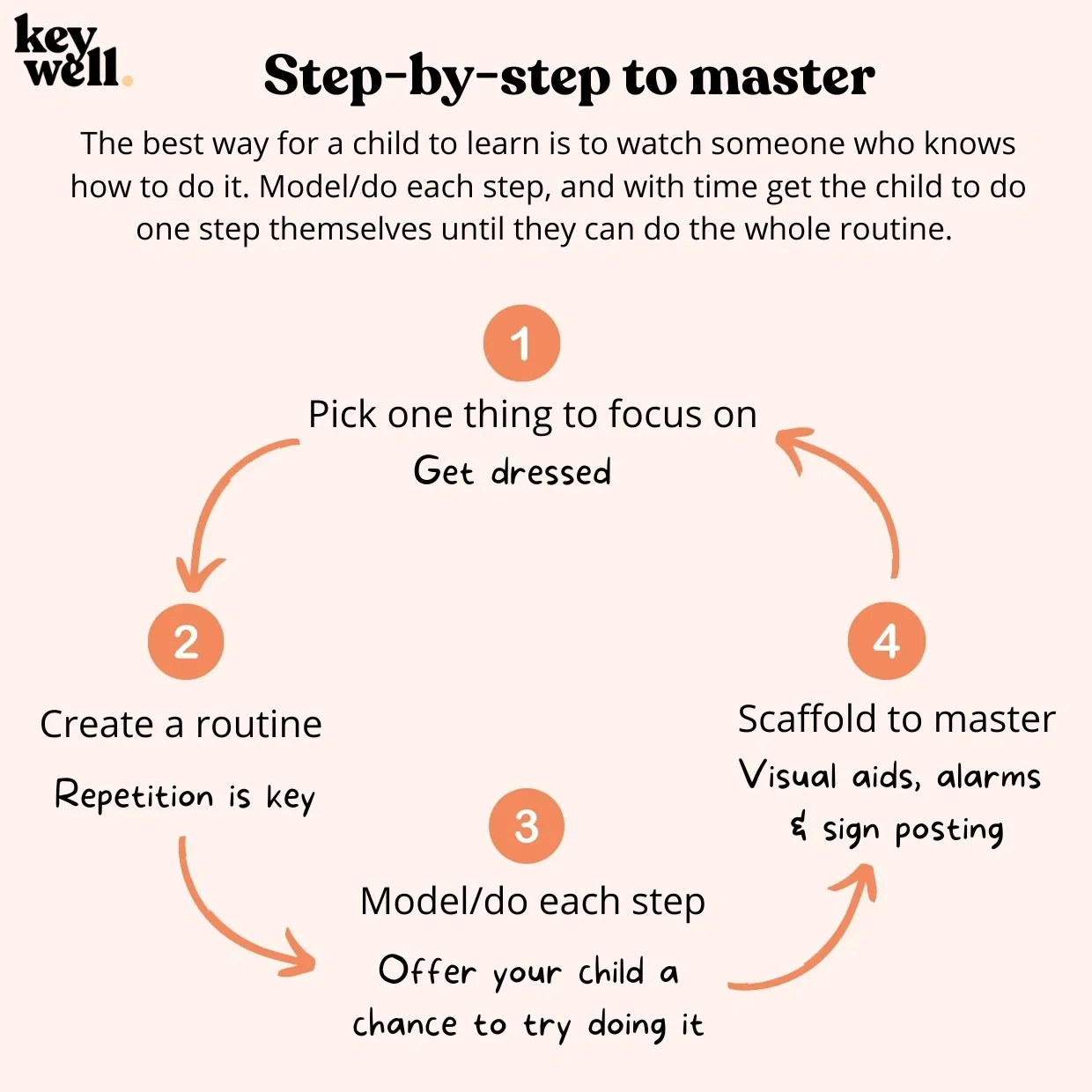
Need to know: How to master routines
Routines make family life run more smoothly, especially in the mornings and evenings or when time is short. If your child struggles with executive dysfunction you may find it difficult to get them to do the same tasks every day without distraction and defiance. Following a set of instructions requires your child to use complex executive functions, such as:
-
- Inhibition: control their impulses and staying focused on the task required of them, rather than doing something that is more fun;
-
- Cognitive flexibility: transition from one task to another, for example, transitioning from eating breakfast to brushing teeth;
-
- Emotional control: regulate their emotions like frustration, anger, excitement, etc;
-
- Initiation: start a task or activity independently without your prompting;
-
- Working memory: hold the necessary information in mind to complete a task, for example, finding and choosing the clothes to get dressed, then putting each item on in the right sequence;
-
- Planning & organisation: anticipate something in the future and develop a plan ahead of time, for example, knowing it is raining and planning to take an umbrella when they go out.
Executive dysfunction requires a lot of scaffolding, so as a parent, you have to readjust your expectations and become a little creative.
Why it’s important
If your child is finding it difficult to follow a routine, don’t do away with it, instead, you can make a few tweaks. Routines are important for executive functioning because they provide structure and organisation for daily tasks and activities. Knowing what tasks need to be done every day can help reduce decision fatigue and mental clutter, allowing your child to focus and learn how to do things independently.
Routines can help to establish a sense of predictability and stability, which can be particularly beneficial for children with ADHD or other conditions that affect executive functioning.
Tips & strategies
Tip 1: Step-by-step to master
The best way for a child to learn is to watch someone who knows how to do it. Model/do each step, and with time get the child to do each step themselves until they can do the whole routine.
It’s important to note that depending on your child, this can take weeks, months or sometimes years.
1. Pick one thing to focus on – get dressed.
2. Create a routine – repetition is key.
3. Model/do each step – offer your child a chance to try doing it.
4. Scaffold to master – visual aids, alarms & sign posting.
Tip 2: Add music to the routine
Music boosts executive functioning in kids. Using it as part of a routine can increase motivation as well as help them develop time sense – how long does it take to brush teeth?
Break down daily routines into simple steps with images. Create a playlist with your child and choose a song for each task.

Tip 3: Signposting
Support your child’s executive functioning by checking in regularly throughout a task or daily routine and prompting them with questions that engage their problem-solving abilities. Over time these same questions can become part of your child’s inner voice.
Try asking the following questions as a way to guide your child through a routine:
- What should you be doing now?
- How much longer do you need?
- What are you doing next?
- Have you got everything you need?
- How do you know you are finished?
References
- Promoting the Development of Executive Functions through Early Education 1 and Prevention Programs
- Neurodevelopmental and Executive Function and Dysfunction– Chapter 32, Desmond P. Kelly and Mindo J. Natale, in Nelson Textbook of Pediatrics, 2020
- Attention deficit disorder, autism share cognitive problems
- Parenting Influences on Executive Function in Early Childhood: A Review
- For Better or for Worse? Positive and Negative Parental Influences on Young Children’s Executive Function
- Neurologic Music Therapy Improves Executive Function and Emotional Adjustment in Traumatic Brain Injury Rehabilitation
- The Effect of Music Intervention on Attention in Children: Experimental Evidence
- The Contributions of Parental Management Language to Executive Function in Preschool Children
- Mothers’ Teaching Strategies and Children’s Effortful Control: A Longitudinal Study


